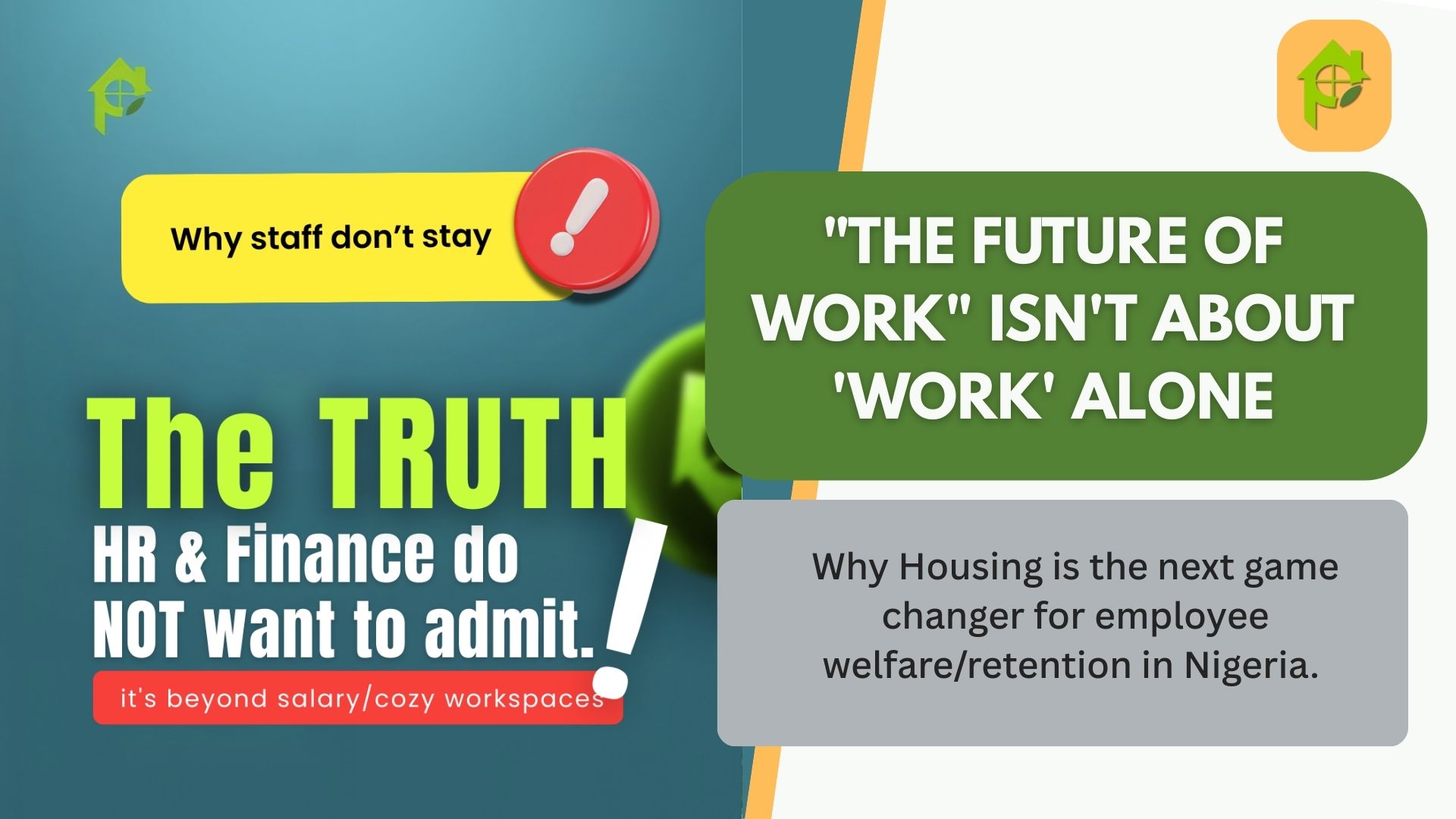
CONTACT US
Affordable Homeownership

SNEAK PEEK
Every HR director, CEO, and manager in Nigeria today is grappling with the same challenge: how to retain our best people?
Despite competitive salaries, training programs, and wellness packages, many organisations still face a familiar cycle:
It’s easy to blame the economy or “Gen Z restlessness.” But beneath the surface lies a silent killer of retention: housing.
For millions of Nigerian employees, homeownership feels out of reach, and rent consumes a painful share of income. Add to that hours lost in gridlock commuting from distant suburbs because homes closer to work are unaffordable, and you see why staff welfare remains under siege.
The truth is staff housing, not just salaries, will define the future of employee welfare in Nigeria.
Nigeria faces a staggering 28 million housing unit deficit, according to the Federal Mortgage Bank of Nigeria. Every year, that gap widens.
Here’s what that means for your employees:
The hidden realities these translate to for organisations are:
Put simply: every extra hour your staff spends in traffic, and every extra naira drained by rent, erodes productivity and loyalty.
Many employers assume the solution is higher salaries. But the evidence says otherwise.
This is why progressive organisations are realising that the real game-changer in staff welfare is structural solutions, not just financial ones.
PetitHaus has developed a model that addresses this challenge head-on: The Assisted Self-Help Staff Housing Initiative.
At its core, the model is simple:
This is a design-led housing intervention built on the Locus Communis framework that reimagines homeownership for Nigerian cities through three strategies:
a) Shared Ownership:
Pooling resources makes prime land accessible. Instead of one staff member struggling alone, collective ownership reduces costs dramatically.
b) Incremental Housing:
Start small (core housing units), expand as income grows. Employees can move in early while building progressively, avoiding being priced out.
c) Community-Powered Design:
Shared courtyards, gardens, play areas, and waste systems reduce individual costs while fostering vibrant, culturally relevant communities.
The result? Affordable, dignified homes that work with Nigerian realities.
This may look like charity, but it is not.
It's strategy. Employers who invest in housing reap measurable returns:
For employees, the transformation is life-changing:
Nigeria’s housing crisis is not slowing down. In fact, it’s accelerating. By 2050, Lagos will be the largest city in Africa, with housing demand far outstripping supply.
Employers who act now will:
Those who wait risk losing their best talent to competitors willing to address this core need.
The question isn’t whether staff housing matters.
The question is, who will lead?
At PetitHaus, we’ve created a framework that makes it possible. We’ve even designed a model 50-unit community (Locus Communis) that shows exactly how it works.
👉 Explore what makes the proposal work and/or download the free presentation
Or
👉 Or reach out to explore how this initiative can be tailored for your organisation.
Because the future of staff welfare isn’t just about higher salaries. It’s about dignified homes and living conditions. It's about community.
01.

02.
Category
Discover insights into creating affordable homeownership with PetitHaus.
